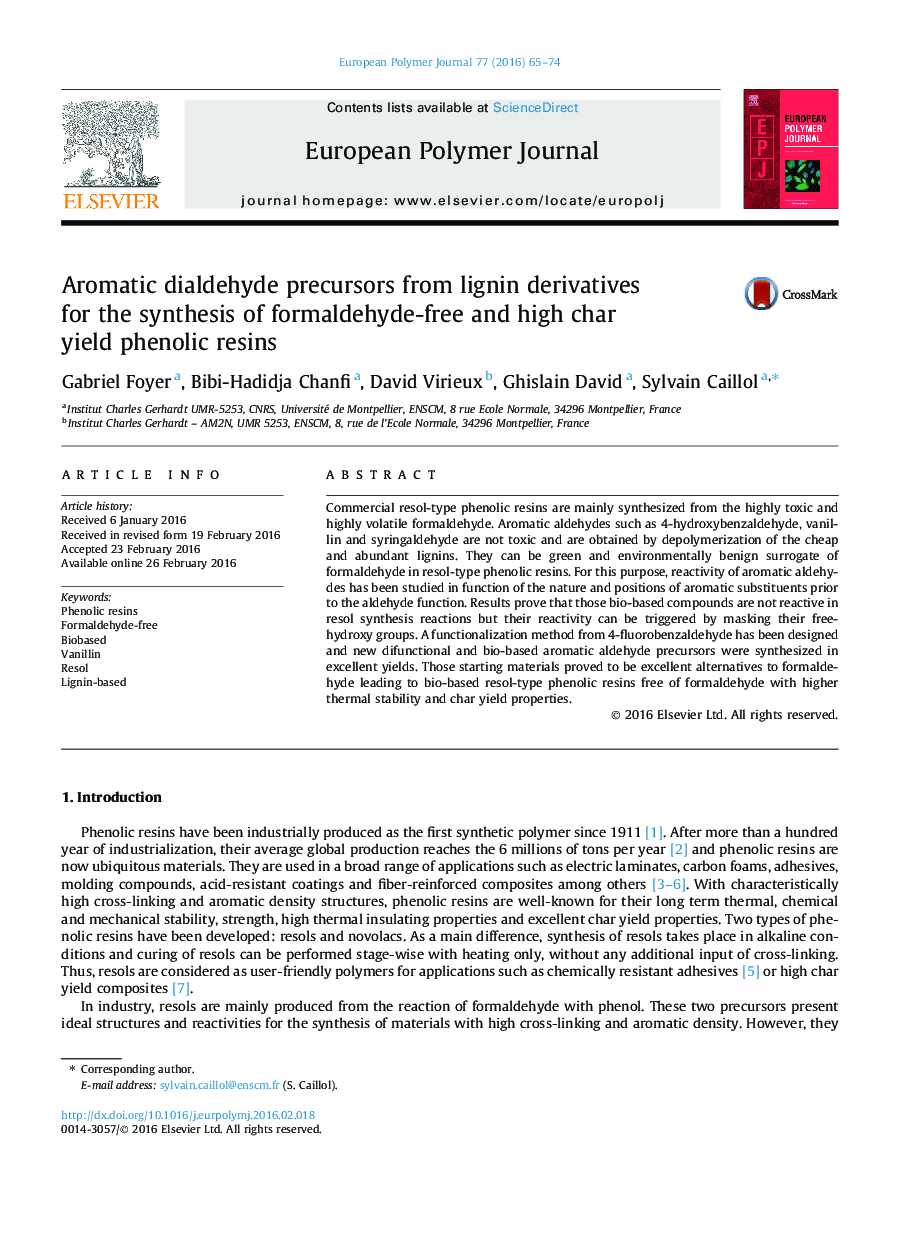| Article ID | Journal | Published Year | Pages | File Type |
|---|---|---|---|---|
| 1401406 | European Polymer Journal | 2016 | 10 Pages |
•Study of reactivity of aromatic aldehydes in function of aromatic substituents.•Reactivity is enhanced by masking free-hydroxy groups of phenols.•New bio-based aromatic aldehyde precursors were synthesized.•Bio-based resol-type phenolic resins were synthesized therefrom.•Those bio-based phenolic resins exhibited high thermal stability.
Commercial resol-type phenolic resins are mainly synthesized from the highly toxic and highly volatile formaldehyde. Aromatic aldehydes such as 4-hydroxybenzaldehyde, vanillin and syringaldehyde are not toxic and are obtained by depolymerization of the cheap and abundant lignins. They can be green and environmentally benign surrogate of formaldehyde in resol-type phenolic resins. For this purpose, reactivity of aromatic aldehydes has been studied in function of the nature and positions of aromatic substituents prior to the aldehyde function. Results prove that those bio-based compounds are not reactive in resol synthesis reactions but their reactivity can be triggered by masking their free-hydroxy groups. A functionalization method from 4-fluorobenzaldehyde has been designed and new difunctional and bio-based aromatic aldehyde precursors were synthesized in excellent yields. Those starting materials proved to be excellent alternatives to formaldehyde leading to bio-based resol-type phenolic resins free of formaldehyde with higher thermal stability and char yield properties.
Graphical abstractFigure optionsDownload full-size imageDownload as PowerPoint slide
